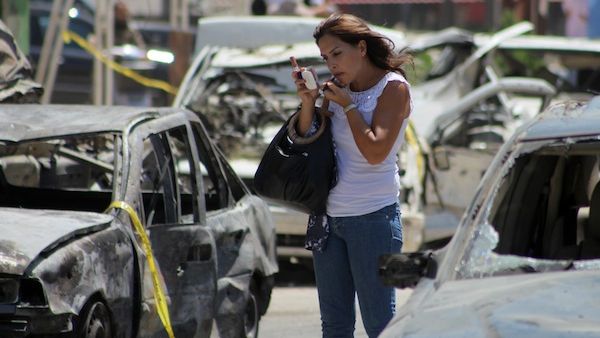Along the lines of the intensifying regional rivalries between Saudi Arabia, the Gulf states and Iran, the Lebanese arena continues to play the role of a “mailbox” for sending messages between the concerned states – an issue that was apparent in the continuing clashes in Tripoli between Bab al-Tabbaneh and Jabal Mohsen.
Observers believe that the events in the capital of the north will continue and will not stop except when the combatants wish to take a breather. There is talk of a Saudi-Syrian struggle in the poorer districts of Tripoli, manifested in rumors of massive amounts of money being transferred to the different groups and their fighters.
The estimated cost of a week of fighting is $2.5 million, which poses questions as to the faction that is funding the battles.
And although this battle is a familiar situation that afflicts the city every time that Arab and regional struggles intensify, what is most dangerous about the issue is talk among regional power centers who speak of a new equation.
While the Syrian regime threatens to launch its latest battle in the mountains of Qalamoun in western Syria to clear them of takfiri groups, the supporters of these factions in Lebanon and Tripoli warn that this step will result in an invasion of Jabal Mohsen as a military response to the regime in Syria.
Dangers abound beyond the clashes in Tripoli, because of the ties to the balance of power in Syria, where loyalist regime forces and the opposition are gearing up for a major battle in Qalamoun, in order to score an advantage before the Geneva II conference.
Well-informed sources say they are confident that the crisis in Lebanon is a result of this battle, as a result of Qalamoun’s strategic and geographical significance. The province is an entryway into Damascus, in addition to being a link between Damascus and Homs.
The region’s geographic nature, large area and valleys allow secure supply lines either to the regime or the opposition, in addition to its strategic proximity to Baalbek and Arsal in Lebanon.
The sources expressed fears of Hezbollah’s involvement in the Qalamoun battle alongside the Syrian regime in a similar vein to the resistance party’s participation in the fight for the border village of Qusair.
They said Hezbollah’s possible participation would be linked to the situation in the town of Arsal, and the possibility of it being targeted through Qalamoun, which is near the border and could threaten the internal situation in Lebanon if it is used in an attempt to alter the calculus in Lebanon in favor of a particular political faction.
Syrian President Bashar Assad hinted to individuals he met with recently that he intends to intensify his faceoff with gunmen in Qalamoun and its surroundings in order to give his Lebanese allies, particularly Hezbollah, an advantage in their ongoing attempt to control Lebanon.
Western sources told The Daily Star that American and Russian talks at the highest levels, which have intensified since the agreement on Syria’s chemical weapons and the run-up to the Geneva II peace conference, have reached an agreement on the need to retain the military stalemate in Syria, amid fears that the success of one side could induce the other to boycott the peace conference, causing its collapse. The agreement was relayed to the Syrian leadership through the Russian Deputy Foreign Minister Sergei Ryabkov.
As a result, Lebanon awaits new developments. Sources close to caretaker Prime Minister Najib Mikati, who is currently undergoing negotiations to halt the bloodbath in Tripoli, said that the key to resolving the situation in Tripoli was to separate it from foreign agendas and to prevent it from being used as a “backyard” to the Syrian crisis. It is now apparent to all that the Jabal Mohsen-Bab al-Tabbaneh clashes are mirroring a relentless regional struggle.
The sources stress the need to deal seriously with the security situation in Lebanon and to set up a joint operations command including the various security agencies to coordinate their work and establish a serious security plan, in addition to lifting the political cover of the groups engaged in Tripoli’s battles.








